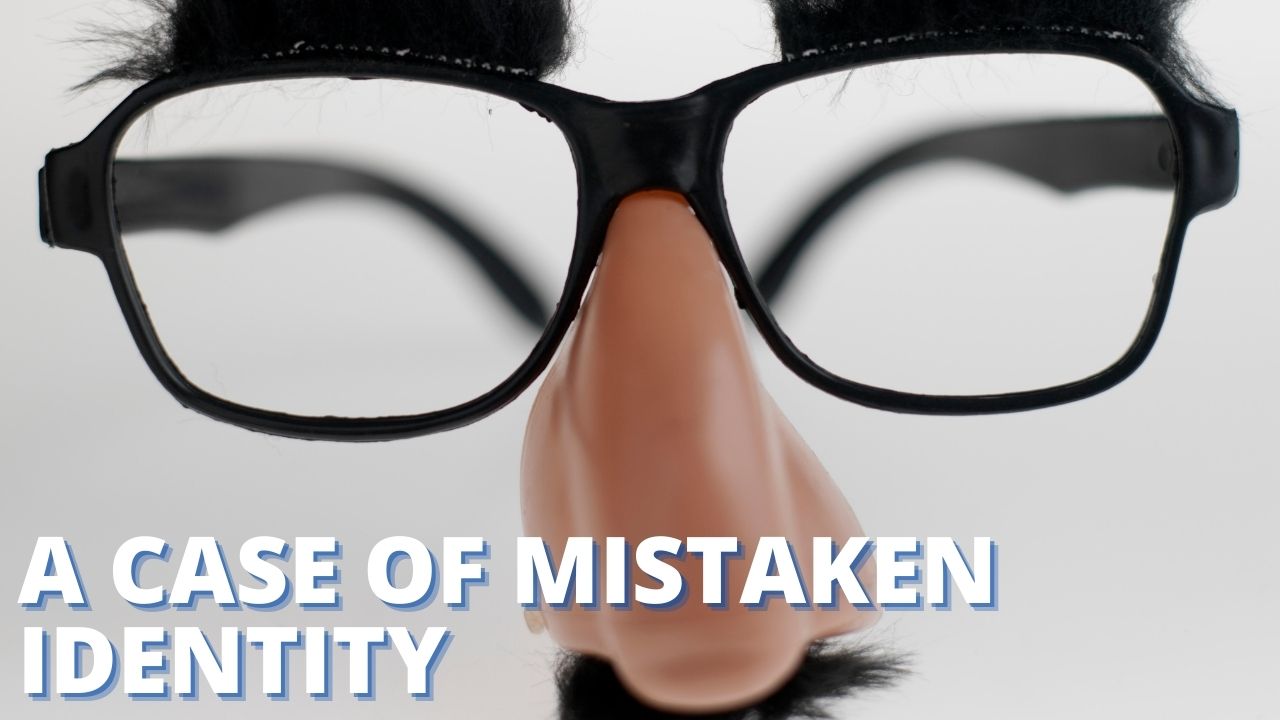A CASE OF MISTAKEN IDENTITY

In January 1961, Rabbi Moshe Feinstein (1895-1986) was approached with a strange and somewhat disturbing halakhic question. At the time, Rabbi Feinstein was renowned as one of the greatest living experts in the field of traditional Jewish law, with an encyclopedic knowledge of every available source, coupled with the courage to chart an original halakhic course when the need arose, and a fresh approach was possible.
The question concerned a Jewish man married to a woman who had converted to Judaism. After the wedding, it emerged that the newly-wedded man was a “cohen” – a Jew of priestly descent – which meant he was forbidden to marry a convert, a Torah law derived from a verse in Parshat Emor (Lev. 21:7; Yevamot 6:5).
The halakhic position is clear: if a cohen marries a convert, whether the marriage was an innocent mistake or the couple hid the groom’s status from the rabbi who performed the ceremony, although the marriage is valid, Jewish law compels the couple to get divorced.
In a few short lines, Rabbi Feinstein dismissed the idea of a forced divorce in this case, and ruled that the man could remain married to his wife (see: Iggerot Moshe EH 4:11). The reason he gave for his lenient ruling was very simple: the husband’s cohen status was based on unreliable evidence. The only indication had emerged at his barmitzva many years earlier, when his father – from whom he was now estranged – declared that he was a cohen, insisting that his son be called up to the Torah for the cohen’s blessing.
But his father was not an observant Jew, while his father’s paternal uncle had never mentioned that he was a cohen, nor had he ever done anything that remotely suggested he considered himself of priestly descent.
According to the Shulḥan Arukh (EH 3:1), if someone walks into a synagogue and claims to be a cohen, we reject his claim unless he can bring at least one reliable witness to support it. But curiously, this stringent view of the Shulḥan Arukh is rejected by Rabbi Moshe Isserles (1530-1572), who observes quite simply that the ruling “is not the custom of our communities.”
As there is no financial benefit to being a cohen nowadays, with the suspension of all the biblically required priestly tithes, the only relevant implication to a claim of priestly descent are restrictions – such as not marrying a convert. Meanwhile, giving a non-cohen the cohen-designated Torah blessing is not considered a significant enough benefit for us to reject a claim of priestly descent.
Rabbi Yehudah ben Shimon Ashkenazi (1705-1745), in his commentary on Shulḥan Arukh Ba’er Hetev, initially takes issue with Rabbi Isserles’ assertion about the lack of financial benefit for a self-declared cohen. How about money gained from a pidyon haben – the ritual ceremony whereby an Israelite father and mother redeem their firstborn son by giving a cohen five silver shekels? Surely that is a financial benefit akin to tithes?
But after posing the question, Rabbi Ashkenazi sets it aside, with the wry observation that the newcomer cohen is unlikely to be chosen to receive a pidyon haben payment, and in any event pidyon haben ceremonies are a rare event.
Rabbi Yaakov Emden (1697-1776) mentions a custom he had observed among some Cohanim he knew to return the pidyon haben payment once the ceremony was over. He thoroughly approved of this practice, as no cohen could ever be certain that they were patrilineally descended from Aaron the High Priest of the Torah, and while we must go through the motions of the redemption ritual, if the cohen kept the money and was not actually a cohen – it would be theft.
Remarkably, Rabbi Emden even suggests that the baby’s father should redeem his eldest son to as many Cohanim as possible, in the hope that at least one of them is a cohen! (See: She’ilat Yaavetz 1:155)
Rabbi Yehudah Ashkenazi’s great-nephew, Rabbi Moshe Sofer (1762-1839), best known by the name of his magnum opus Chatam Sofer, takes the discussion about a self-declared cohen in a slightly different direction.
At the beginning of Parshat Emor, the Torah instructs us to treat each and every cohen as holy (Lev. 21:8): וְקִדַּשְׁתּוֹ כִּי אֶת לֶחֶם אֱלֹהֶיךָ הוּא מַקְרִיב קָדֹשׁ יִהְיֶה לָּךְ – “you must consider him holy, since they offer God’s bread; they shall be holy to you.” Indeed, the reason we reserve the first Torah blessing for a cohen is as a direct result of this verse.
In which case, says Rabbi Sofer, how can Rabbi Isserles suggest that we allow a cohen whose status is unconfirmed to fulfill this role of being called up to the Torah as a cohen, by which we discharge our duty to treat a cohen as holy, if there are Cohanim in our community whose lineage is confirmed? We have a rule in Jewish law that when there is a choice between something certain and something uncertain – certainty always takes precedence over uncertainty.
His answer is surprising. If we give honor to this self-declared cohen of uncertain ancestry, says Rabbi Sofer, even if he is an imposter, we will nonetheless have discharged our duty of showing deference to the holiness of Cohanim. After all, the reason we call him up to the Torah as a cohen is because we believe him to be one, which means that even if we are wrong about his identity — we have still satisfied our obligation.
And if the man deliberately misidentified himself as a cohen, he is the one who has done something wrong; those who show him esteem are doing so for the right reasons, and can still benefit from having done their mitzvah.
The late Rosh Yeshiva of Torah Vodaath, Rabbi Avraham Yaakov Pam (1913-2001) – himself a cohen – adds another dimension to this novel idea. He says that Rabbi Sofer’s explanation of Rabbi Isserles’ lenient ruling can be a source of solace for rabbis who know they don’t deserve the acclaim and veneration they get. While they may not be as spiritually elevated as their acolytes think they are – that’s just fine, because anyone who shows them honor is doing the mitzvah of honoring a Torah scholar, even if those they honor are not worthy, just as someone who honors a cohen receives the merit of the mitzvah, even if the cohen is not actually a cohen.
In the final analysis, we always have to do our duty – and the rest we must leave to God.



